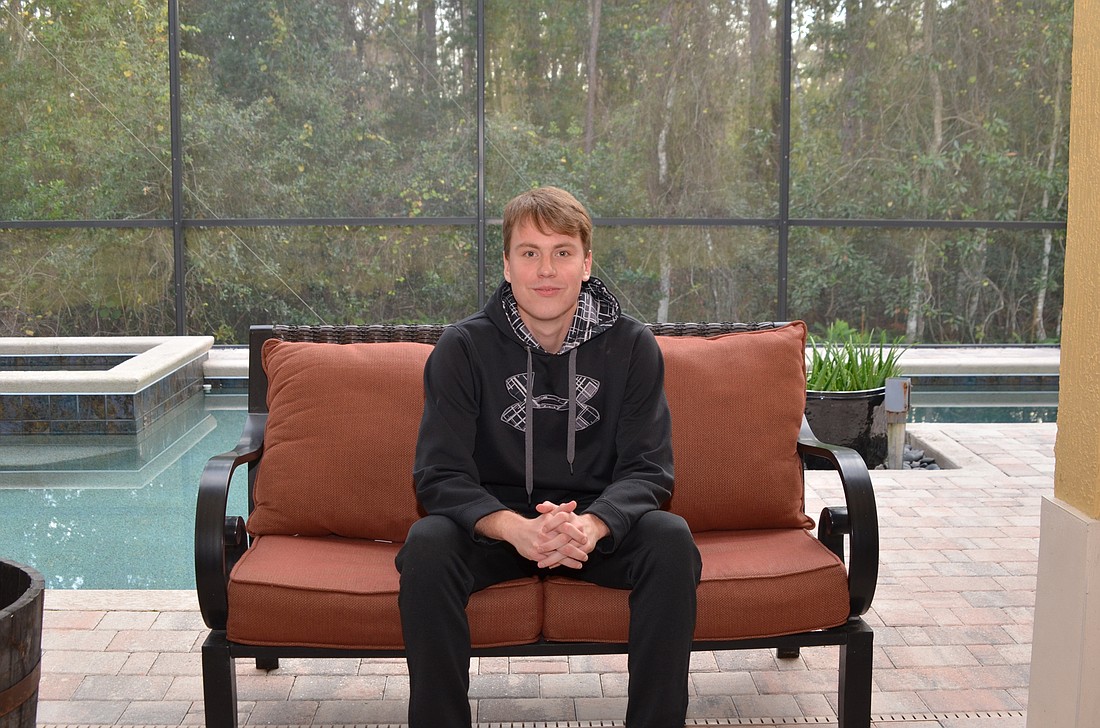- February 21, 2025
-
-
Loading

Loading

When Matthew Cobb woke up in the hospital in early December, he was unaware of the events that had unfolded in the days prior. He did not remember falling from a forklift at work, nor was he aware he had experienced a cardiac arrest and was given a 50% chance of survival.
The 20-year-old Winter Garden resident has been gathering the details of the Nov. 30 incident and piecing together what happened to him. He and a co-worker, Jordan Shelton, were on the forklift at Consolidated Pipe & Supply, in Pine Hills, when Cobb said he didn’t feel well. He passed out and fell from the machinery to the ground; Shelton called 911 and was given directions on administering CPR.
Another employee, his uncle, Walt Cobb, also assisted with CPR until paramedics arrived and took Matthew Cobb to AdventHealth Orlando.
“They shocked me about three times, and each time it was a higher voltage,” he said.
Once at the hospital, Matthew Cobb, still unconscious, was put in an induced therapeutic hypothermia, which sometimes is used to treat comatose patients who survive a cardiac arrest. A few days later he was moving his hands and blinking; he was walking with a walker two days after that.
He recalls being terrified and asking his parents, Joe and Andrea Cobb, dozens of questions. A battery of tests was performed to test his brain and heart function and to assess the damage. Doctors could not find anything wrong with Matthew Cobb — an active college student who did three-times-a-week workouts and had played baseball since he was a child — but they determined he was a good candidate for a cardioverter-defibrillator implantation.
Defibrillators restore a normal heartbeat by sending an electric shock to the heart and, in his case, can restore a heartbeat if his heart suddenly stops again.
“I was hesitant,” he said. “I researched, and I found the worst case possible: chance of death, it can randomly shock you.”
He ultimately chose to go through with the surgery.
“This is called an SICB — it’s a newer version that is put near the ribcage and then run a wire down to your bellybutton and then up to your heart,” Matthew Cobb explained. “You can see the outline of the defibrillator on my side.”
Dec. 12 was a monumental day — he was discharged from the hospital and sent home in time to enjoy the holidays with his family.
He has a follow-up appointment later this week, and doctors will test the defibrillator for accuracy. He has another device in his bedroom that sends weekly data to a clinic so physicians can monitor its effectiveness.
He will undergo genetic testing next.
“I feel great now; I barely notice it’s there,” Matthew Cobb said. “The only time I notice it’s there is if I lay down on my side. They said I could pretty much do anything other than very physical activity, like football or big contact sports, so I can do everything I was doing before.”
He has not yet returned to the job, where he had been working part-time while attending and pitching for the baseball team at Lake Sumter Community College. He plans to attend the University of Central Florida in the summer to major in legal studies or criminal justice. He is a graduate of Olympia High School.
Joe and Andrea Cobb have spent the last six weeks taking care of their son and trying to understand what happened. They said he is a healthy young adult who doesn’t smoke, do drugs or drink energy drinks, which studies have shown can increase heart rate.
The Cobbs are working on a way to educate the public about the importance of knowing CPR and making businesses aware of the importance of having automated external defibrillators available. The Cobbs want to start a nonprofit organization that would raise money for AEDs and provide literature on cardiac arrest, CPR and AEDs.
“Once you go into cardiac arrest, the time between that and CPR matters,” Joe Cobb said. “We’ve got a story. (Matthew) can go around and tell this stuff: CPR and AEDs can save lives.
“That’s something that people just don’t know about,” Joe Cobb said. “I’ve talked to people in the last month, and I can’t believe how many 20-years-olds have gone through (cardiac arrest) and didn’t make it. People at the hospital said, ‘Boy, you got lucky.’”
The Cobbs believe it was more than luck.
“Matt's story is really a miracle and one that shows the power of prayer,” Joe Cobb said. “I want to stress how thankful we are for the support and prayers all our family, friends, strangers, coaches and church gave to our family. I have lived in the West Orange community all my life, from Ocoee growing up to now living in Winter Garden, and this is a very special place. I can't imagine being somewhere else when all this happened.”
Matthew Cobb and his family were placed on many prayer lists, and a bishop in their neighborhood held a prayer vigil in the cul de sac.
“God had His hand in this for sure,” Andrea Cobb said. “Joe and I both believe things happen for a reason, and we are trying to brainstorm where there is a need … in cases like Matthew’s and go from there. We still haven’t figured out the ‘why’ this happened or how we are going to use this situation for good.”
They have set up an email address — matthewsstory2020@gmail.com — for folks interested in contacting them for possible collaboration in the future.